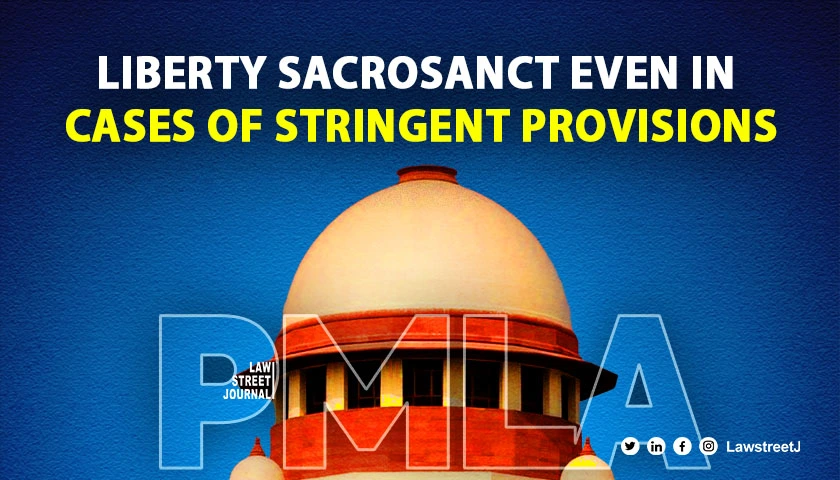NEW DELHI: The Supreme Court has said the right of liberty guaranteed under Article 21 of the Constitution is a sacrosanct right which needs to be respected even in cases where stringent provisions are incorporated in the special enactments.
Granting bail to AAP's Communication-in-Charge Vijay Nair in the Delhi's liquor policy scam, a bench Justices Hrishikesh Roy and S V N Bhatti noted he petitioner has been in custody for over 22 months and his incarceration as an under-trial cannot be the mode of punishment in the case.
The court found that there are nine complaints by the ED, 40 accused, 350 witnesses and 25,000-page documents filed by the probe agency. "It appears to be a case of continuing investigation for over two years" the bench said.
The petitioner led by senior advocates A M Singhvi and Rebecca M John was arrested on November 13, 2022.
His counsel contended the petitioner was named by co-accused Dinesh Arora who turned approver in his 12th statement. They relied upon orders in case of Manish Sisodia and K Kavitha also to seek parity.
The Enforcement Directorate represented by Additional Solicitor General S V Raju referred to judgement of Vijay Madanlal Choudhary (2022) to emphasise the stringent conditions of bail.
The bench pointed out this court in a series of decisions has held that the rigours under Section 45 can be relaxed if the custody is for a considerable period of time and there is no likelihood of conclusion of trial within a short span.
Relying upon Manish Sisodia case, the bench said the right of an accused for expeditious trial and that the fundamental rights guaranteed under Article 21 cannot be subjugated to the statutory bar in Section 45 of the Prevention of Money Laundering Act, related to twin conditions for bail.
"It was also observed that the right to bail in cases of prolonged incarceration and trial delays, depending on the nature of the allegations, should be considered under Section 439 CrPC and Section 45 of the Act. Most importantly, bail should not be withheld as a form of punishment, reiterating the principle that bail is the rule, and its refusal is the exception," the bench said.
In its order on September 2, 2024 the bench also relied upon a recent judgment in Prem Prakash case, wherein the court again reiterated that fundamental right enshrined under Article 21 cannot be arbitrarily subjugated to the statutory bar in Section 45 of the Act.
The court noted the accused is lodged in jail for a considerable period and there is little possibility of trial reaching finality in the near future.
"The liberty guaranteed under Article 21 of the Constitution does not get abrogated even for special statutes where the threshold twin bar is provided and such statutes, in our opinion, cannot carve out an exception to the principle of bail being the rule and jail being the exception," the bench said.
The cardinal principle of bail being the rule and jail being the exception will be entirely defeated if the petitioner is kept in custody as an under-trial for such a long duration. This is particularly glaring since in the event of conviction, the maximum sentence prescribed is only seven years for the offence of money laundering, the bench added.

















